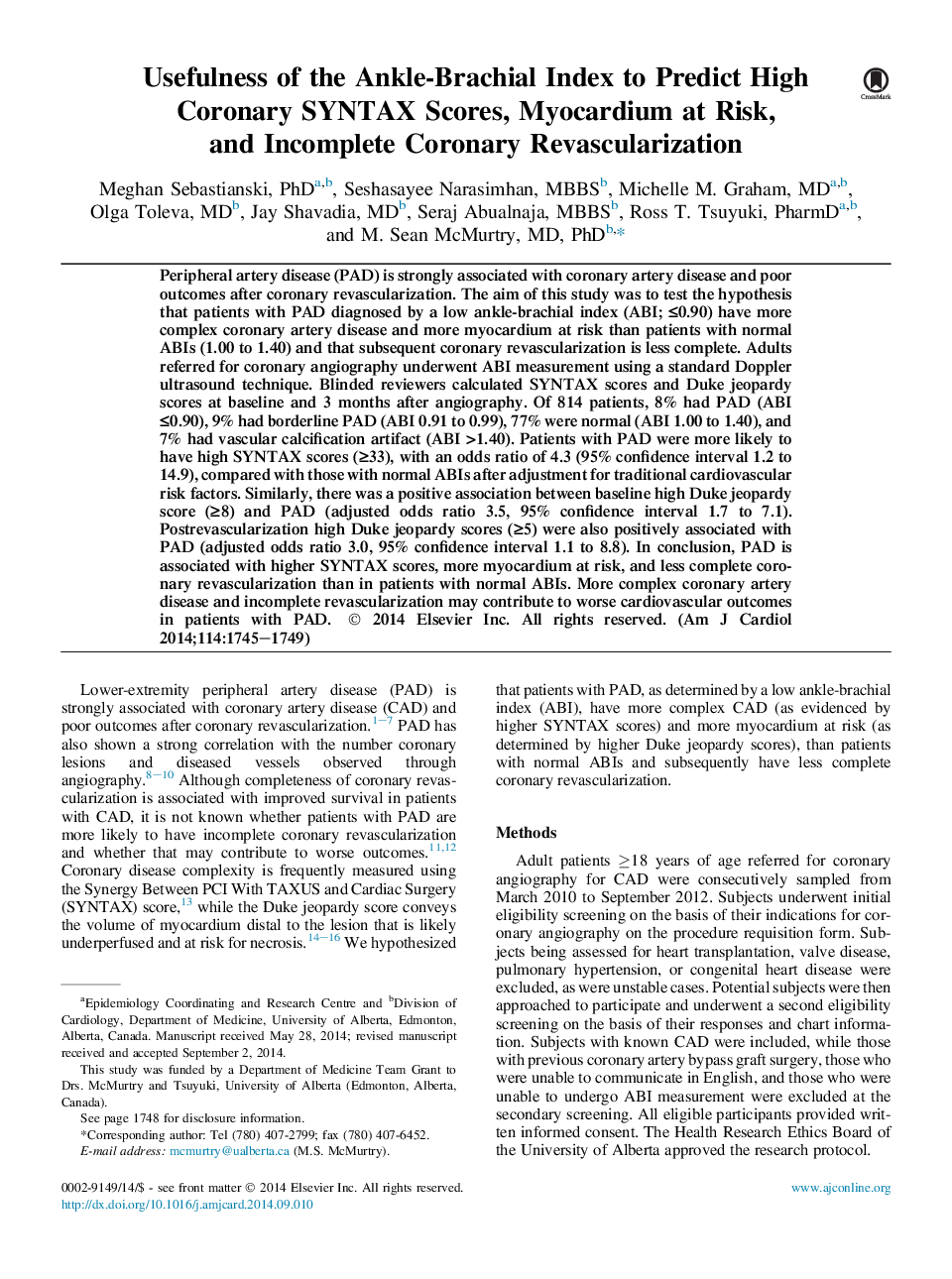| کد مقاله | کد نشریه | سال انتشار | مقاله انگلیسی | نسخه تمام متن |
|---|---|---|---|---|
| 2854253 | 1572153 | 2014 | 5 صفحه PDF | دانلود رایگان |
Peripheral artery disease (PAD) is strongly associated with coronary artery disease and poor outcomes after coronary revascularization. The aim of this study was to test the hypothesis that patients with PAD diagnosed by a low ankle-brachial index (ABI; ≤0.90) have more complex coronary artery disease and more myocardium at risk than patients with normal ABIs (1.00 to 1.40) and that subsequent coronary revascularization is less complete. Adults referred for coronary angiography underwent ABI measurement using a standard Doppler ultrasound technique. Blinded reviewers calculated SYNTAX scores and Duke jeopardy scores at baseline and 3 months after angiography. Of 814 patients, 8% had PAD (ABI ≤0.90), 9% had borderline PAD (ABI 0.91 to 0.99), 77% were normal (ABI 1.00 to 1.40), and 7% had vascular calcification artifact (ABI >1.40). Patients with PAD were more likely to have high SYNTAX scores (≥33), with an odds ratio of 4.3 (95% confidence interval 1.2 to 14.9), compared with those with normal ABIs after adjustment for traditional cardiovascular risk factors. Similarly, there was a positive association between baseline high Duke jeopardy score (≥8) and PAD (adjusted odds ratio 3.5, 95% confidence interval 1.7 to 7.1). Postrevascularization high Duke jeopardy scores (≥5) were also positively associated with PAD (adjusted odds ratio 3.0, 95% confidence interval 1.1 to 8.8). In conclusion, PAD is associated with higher SYNTAX scores, more myocardium at risk, and less complete coronary revascularization than in patients with normal ABIs. More complex coronary artery disease and incomplete revascularization may contribute to worse cardiovascular outcomes in patients with PAD.
Journal: The American Journal of Cardiology - Volume 114, Issue 11, 1 December 2014, Pages 1745–1749
